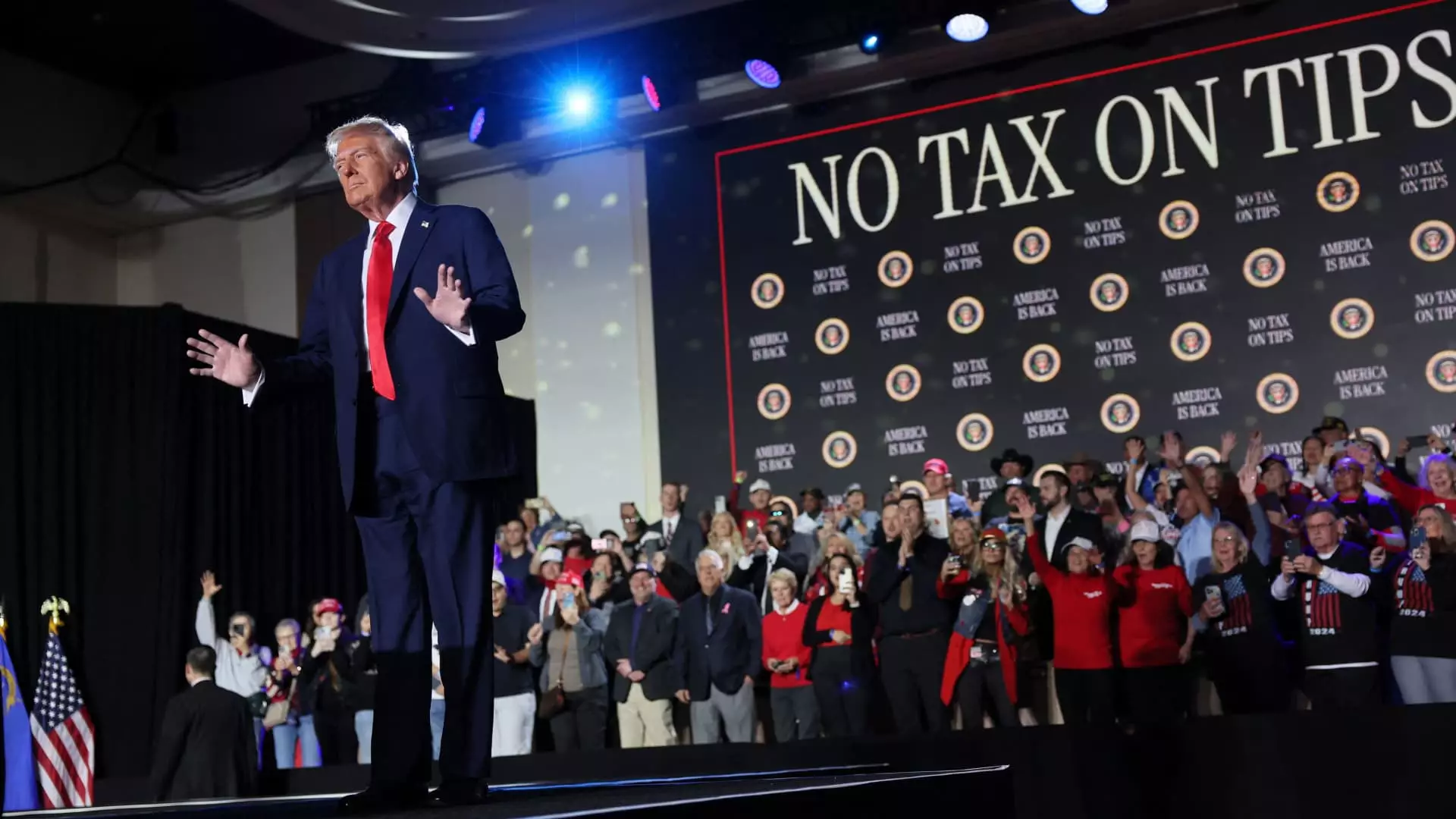This week’s unanimous passage of the No Tax on Tips Act in the Senate is a striking reminder that even in the often-divisive realm of American politics, certain issues can unite legislators. However, this alliance raises some critical questions about the efficacy and fairness of such a measure. The act, with its aim to offer a federal income tax deduction of up to $25,000 for workers who earn tips, appears to have a noble intention—to provide economic relief for a vulnerable segment of the workforce. But, as is often the case in legislative maneuvers, the devil lies in the details.
The tax deduction would specifically benefit workers in traditionally tipped occupations, such as servers and taxi drivers, fundamentally granting a preferential tax treatment based on the nature of income. But should income—especially when it is derived from voluntary tips—be treated differently than wages from standard employment? This question should worry anyone concerned with the principles of equitable taxation and economic justice.
Selective Benefits and the Disparate Impact
Supporters of the bill, including notable figures like Senator Ted Cruz, have hailed it as a triumph for hard-working Americans. Yet, closer scrutiny reveals that the legislation primarily offers an advantage to a specific group, often marginalizing others who are equally deserving but don’t fit the mold.
With the $160,000 income cap for eligibility, which is set to adjust based on inflation, the proposed tax benefit primarily aids those in the middle to upper tier of the tipping workforce. This creates awkward disparities, as many of the lowest-income earners in tipped jobs do not financially benefit to a significant degree from these deductions. Essentially, someone making $30,000 a year and receiving a mere $5,000 in tips stands to gain less than a colleague pulling in $80,000 in income from their employment and tips combined.
It is hard to look at this proposed legislation through any lens other than that of favoritism—the wealthiest can find the most significant taxpayer relief, while those scraping by do not gain any remarkable advantage. Senator Cruz’s claim that this measure embodies a commitment to real relief feels more like an empty promise when the numbers are examined.
Creating Unintended Consequences
Beyond the evident inequities, there are practical considerations regarding the implementation of such a tax policy. Experts, like Alex Muresianu of the Tax Foundation, have pointed out potential complications that could arise as a direct consequence of a no-tax-on-tips legislation. There are concerns that this could alter compensation structures within industries heavily reliant on tips, spurring an imbalance where employers might lean towards a tipping-centric wage model.
Imagine a scenario where waitstaff and rideshare drivers experience amplified pressure to get tips, thereby subtly shifting income levels in a dangerous manner. As tips grow in importance for overall compensation, workers might end up feeling greater economic instability rather than increased financial security—a potential recipe for exploitation in already precarious jobs.
Another alarming possibility presents itself: the potential for misclassification. Fraudulent practices could emerge where income can be easily misreported as tips to exploit the tax exemption without adequate oversight. In this sense, the proposal not only risks creating economic disparity but could also open the floodgates to deceptive reporting practices.
The Call for a More Equitable Tax Strategy
Why should we perpetuate an economic model that rewards specific types of income while others are subject to the full weight of taxation? The argument that tips, as discretionary income, deserve a unique tax distinction crumbles when we consider the broad implications this has on fairness. We risk sending a message where all workers should fairly carry their tax burden without delineations based on their job titles or the nature of their income.
In examining the No Tax on Tips Act, one must ask whether we should push for a broader discussion about tax reform that embraces justice and neutrality across all industries. Rather than pandering to targeted demographics, we should seek solutions that elevate the entire workforce, ensuring no one is left behind, while avoiding measures that increase economic divides. The path forward should focus on comprehensive wage support and benefits that encompass the vast array of employment sectors—not a hodgepodge of loophole-laden legislation that appears generous but fails to deliver true equity.

